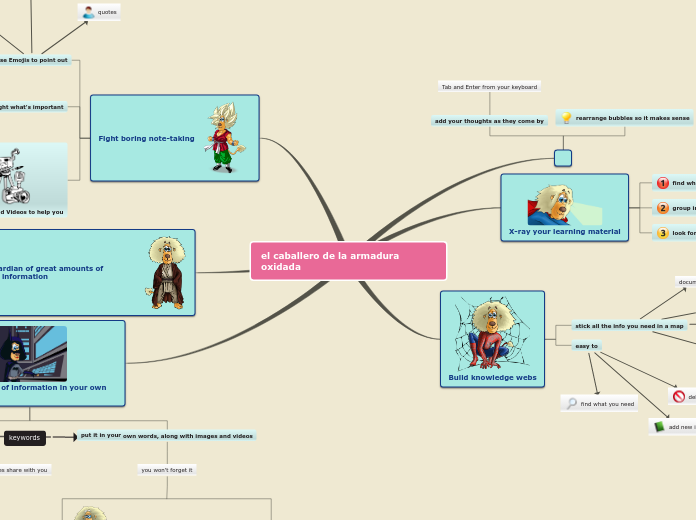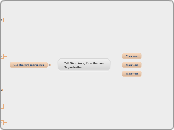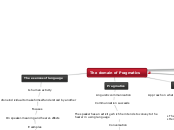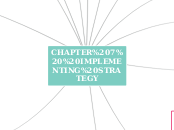Poetry: Power and Conflict Anthology
Checking Out Me History
Anger of the narrator can be found in:
National identity can be found in:
National identity, anger of the narrator
"I checking out me own history, I carving out me identity"
"See-far woman"
"No dem never tell me bout dat"
"Bandage up me eye"
"Dem tell me"
Repetition, chanting, steady rhythm are like oral story telling traditions in the Caribbean
The British stanzas sound childish and reference nursery rhyme figures alongside real historical individuals
Focuses on the contrasts between European historical figures and Caribbean cultural icons
Language related to blindness or partial sight appears throughout the poem, referencing how his education hid the truth from Agard
Caribbean accent used throughout the poem
"Dem", and "me" shows the separateness of the poet and the British education he received
At the end, he determines to learn about his own heritage and create and individual identity
About how the Guyanese education system taught him about British history but not his own
John Agard
Kamikaze
Memories can be found in:
Nature, memories
"The dark prince"
"Strung out like bunting"
"A one-way journey into history"
"Full of powerful incantations"
Most of the poem is seen from the perspective of the pilot's daughter
The pilot's voice is missing, which shows how he was isolated from society
Later on her voice becomes clear
First five stanzas are one sentence, showing the fluidness of his memory and recounts
Simile and metaphors are used to describe the fishing boats and fish he sees
References to samurai traditions
Makes his actions seem spellbound
"sword", "shaven head", "powerful incantations"
His family ignores him and treat him as an outcast
The pilot sees the sea below him and reminisces about his childhood, changing his mind and returning home
Kamikaze pilots were honoured by their families if they died in battle
Repercussions of a World War Two Kamikaze pilot from Japan changing his mind on a suicide mission
Beatrice Garland
Effects of Conflict can be found in:
Loss can be found in:
Loss, Effects of Conflict
"An ornamental stitch"
"My stomach busy making tucks, darts, pleats"
"You were away, intoxicated"
"I was brave"
"Spasms of paper red"
Story follows the son preparing to go off to war, however we don't know when the events took place and whether the son is even alive
Lack of regular rhyme or rhythm emphasizes the poem as a memory or thoughts
First person narrative helps us feel the mother's emotions
Mothering images show how she wants her son to return to being a young and protected, however the man sees the world as "Overflowing like a treasure chest"
"Smoothed down your shirt"
Creates a comparison between the domestic environment of home and the cruel realities of war
Juxtaposes the words of war
Textile words like "Yellow bias binding", "Tucks, darts, pleats" etc
"Blockade", "War graves", "memorial", and "reinforcements" replaced with textile words
Weir is a textile artist and the language of textiles is seen throughout
Imagines sending one of her own sons off to war
Weir took Susan Owen, mother of Wilfred Owen, as her inspiration
Jane Weir
Effects of war can be found in:
Personal experience and the effects of war
"They do not care"
"Between the bath and the pre-lunch beers"
"He has a job to do"
At stanza three, a clear volta occurs
Shows how the photos have developed and show individual images
Four stanzas, set out in equal length and with a regular rhyme scheme
Reflects the "ordered rows" of his photos in the darkroom
Religious imagery shows the seriousness of the photographers work
Pictures contrast to the rural England he has returned to
Emotive language
the photos are "a hundred agonies"
"Spools of suffering"
Image at the end could be a reference to an important photo from Vietnam
Reflects the practice of preparing real film in darkroom
Effects of trauma on photographers who take pictures of famine and war
Carol Ann Duffy
Realities of war, fear
"Terror's touchy dynamite"
"King, honour, human dignity, etcetera dropped like luxuries"
"Rolled like a flame"
"Cold clockwork of the stars and the nations"
"Patriotic tear"
"Bullets smacking the belly out of the air"
Third person, shows how the soldier is merely a person on the battlefield
Uneven, enjambment and caesura to create an irregular rhythm to reflect the soldier's panic
Caesura: stop or pause in the middle of the line
Enjambment: lack of punctuation at the end of the line
Juxtaposition between the events and the surroundings
"yellow hare"
"green hedge"
"Cold clockwork" indicates the soldier's lack of control and his small part in the bigger machinery of war
Similes are used to express the hare's flight and irrationality of the soldier
Pain of the soldier and his youth and inexperience are indicated in words like "raw" and "bewilderment"
Feelings of patriotism replaced as he charges with an overriding sense of fear
Feelings of a soldier going over the top
World War One
Ted Hughes
Realities of war can be found in:
Charge of the Light Brigade
Nature can be found in:
Power of nature, personal experience, realities of war and loss of hope
"All their eyes are ice"
"Sudden successive flights"
"Dawn massing in the east"
"But nothing happens"
"East winds that knive us"
Rhetorical questions meant to make the reader ponder the purpose of war and the suffering of the men
"Each of the eight stanzas ends with similar short half lines, like the monotony of trench life and lack of action
Action seems like we are involved with words like "our" and "we"
First person, present tense
Sibilance and assonance are used to show the whistling sound of bullets and the painful journey
Highlights the sense nature is readying to attack
Dawn is personified as an army readying to charge
Pathetic fallacy, weather is bleak and the pain of the men is reflected
Focuses on the horrific conditions which the men lived for months on end
He had become disillusioned with the war and his anger at the huge loss of life
Written from the trenches in 1917-1918
Wilfred Owen
The Prelude: Stealing the Boat
Power of nature, personal experience
"Upreared its head"
"A huge peak, black and huge"
"An elfin pinnace"
"Act of stealth and troubled pleasure"
Poem is organised into three sections
3: Final reflection on the effect of the experience
2: Darker tone when the mountain appears
1: Fairy-tale like opening
Regular rhythm and blank verse makes the poem sound like natural speech
First person narrative, in line with an autobiography
Poets initial confidence in nature is lost by the end
Almost fairy-like impression of nature at the start
Contrasts the later, more dramatic language and personification as the poet finds the mountain scary
He hastily returns to shore
Enjoys the surroundings before a mountain appears and scares him
He steals a boat and rows out into a lake
Autobiographical poem that explores key moments in Wordsworth's life
William Wordsworth
Pride can be found in:
Power of humans, pride, control
"I choose never to stoop"
"My gift of a nine-hundred-years-old name"
"None puts by the curtain"
"My last Duchess"
Rhyming couplets and iambic pentameter show the Duke's control
Control is loss when he is angered, and can be seen with enjambment
Dramatic monologue
The way the Duke speaks seems innocent at first, but phrases like "I gave commands" are not
He saw her as one of his possessions
She is a picture in his gallery
Conveys the power and control he had over his past wife
In the course of discussion, the Duke shows the envoy a picture of his past wife and indicates that he had her killed
Envoy visited to arrange the Duke's next marriage
Relays the imagined conversation of the Duke of Ferrara with an envoy
Set in 15th century Italy
Robert Browning
The Emigree
Power of memory can be found in:
/
Poppies
Power of memory
"They accuse me of absence"
"My city comes to me in its own white plane"
"Time rolls its tanks"
"There was once a country"
Each stanza ends with phrases about sunlight, reflecting her positive view on the city
Caesura and end stops in the final stanza reflect the city walls and closed borders
No regular rhyme scheme or rhythm making it feel like their disjointed memories
References to the problems in her home city:
"They mutter death"
"Banned by the state"
"Sick with tyrants"
Language relates to sunlight and the glow of her city
The city is personified as coming to her "in its own white plane"
Begins like a fairy tale, reminding us that its a set of memories
She remembers the city with longing, even though an unknown entity threatens it
Her home was under attack and she cannot return
Discusses the feelings of someone who had to leave her own country as a child
Carol Rumens
Tissue
Power of nature/humans can be found in:
Power of nature/humans
"A grand design with living tissue"
"Might fly our lives like paper kites"
"Pages smoothed and stroked and turned"
"This is what could alter things"
Talks about ways that paper influences our lives but moves onto talking about living tissue
Short stanzas represent the thin sheets of paper
No rhyme scheme or regular line length, gives the poem a sense of freedom
Simile references how life can be controlled by money and bills
Light is referred to throughout
pages of the Koran are "turned transparent"
"Sun shines through their borderlines"
'Tissue' refers to human tissue too
Paper can control human lives
Importance of paper
Imtiaz Dharker
Effects of conflict can be found in:
War Photographer
Effects of conflict
"Near to the knuckle, here and now"
"Dug in behind enemy lines"
"Blood-shadow stays on the street"
"Sort of inside out"
"Three of a kind all letting fly"
"Legs it up the road"
Changes from soldierly anecdote to deep confession, almost like an overheard therapy session
No rhyme scheme or regular line length
"Bloody life" and "Bloody hands" may refer to Lady Macbeth's imagined bloody hands
"Blood shadow" foreshadows the death haunting the soldier
Nonchalant when his fried "tosses his guts back into his body"
Colloquial, as if written by the soldier
Soldier feels guilt
Soldier did not know if the looter had a weapon
About the killing of a looter who had robbed a bank
British soldier who served in Iraq
Simon Armitage
Personal experience of a place:
Power of nature can be found in:
Power of nature, personal experience of a place
"It is a huge nothing that we fear"
"Space is a salvo"
"Spits like a lame cat turned savage"
"Tragic chorus"
"We are prepared"
Blank verse gives the impression of the conversation
Starts by showing confidence in the villagers, but later shows the fear caused by the "huge nothing" of the storm
Text is inclusive, as if 'we' are part of the action
First person in which the narrator talks directly to the reader
Onomatopoeic words such as
Used to reflect the noises of the sea and wind
Spit
Exploding
Blast
Metaphor and simile used to describe the storm as it attacks the island
Nature personified as a "tragic chorus" and a boxer
Concentrates on the fear and violence of the storm
The first eight letters of the title create 'Stormont' - the home of the Irish National Assembly
Could be a metaphor for the troubles in Northern Island
About a storm on an island
Seamus Heaney
The Charge of the Light Brigade
Realism of war can be found in:
Remains
Bayonet Charge
Realism of war
"All the world wonder'd"
"Theirs not to reason why"
"Valley of Death"
"The six hundred"
Lack of rhyme scheme mimics the chaos of battle
Regular rhythm creates the impression of charging cavalry
Third person, narrator clearly values the contributions of the soldeirs
Dead and hell are personified with "jaws" and "death"
Language becomes increasingly violent
"volley''d and thunder'd"
"Valley of Death" references Psalm 23 of the Bible
"Six hundred" repeated at the end of each stanza, reminding us of the numbers involved
Heroic language
"Honour"
"Glory"
"Boldly"
The Light Brigade was ordered to advance into a valley even though it was surrounded by enemies
Tribute to the cavalry officers who died in the tragic charge against the Russians
War in the Crimea
Alfred Tennyson
London
Individual experiences can be found in:
Power of humans, individual experiences, inequality, corruption
"Blights with plagues"
"Marks of woe"
"Earch chartered street"
ABAB rhyme scheme shows the relentlessness of misery and corruption in the city
First person monologue gives us a very personal view
"Mind-forged manacles"
Indicates the people are trapped by their own attitudes
Powerful and emotive descriptions
Use of contrast between the youth and the lack of innocence
"Youthful harlot's curse"
Described using all the senses
The people in power (the Church, the aristocracy, etc.) do nothing to help
Everywhere he goes he sees despair and inequality
Narrator walks around London
William Blake
Ozymandias
Links/Themes
Pride can be found in
My Last Duchess
Power of nature can be found in
Storm on the Island
Exposure
The Prelude
Power of nature/humans, pride
Key Quotations
"Colossal wreck, boundless and bare"
"Sneer of cold command"
"Shatter'd visage"
Key Structural Features
The enormity of the desert rounds off the poem, showcasing the power of nature
Sonnet in structure, with a turning point on line 9.
Key Language Features
Irony
The kings bold words mean nothing in the face of nature
Powerful and angry
Shows the king's aggression: "Sneer of cold command"
Overview
The statue has now tumbled down and is half buried in the sand
The statue is of a king and the inscription brags about how powerful he was when alive
Narrator meets a traveler who tells him about a statue standing in the middle of the desert
Percy Bysshe Shelley









